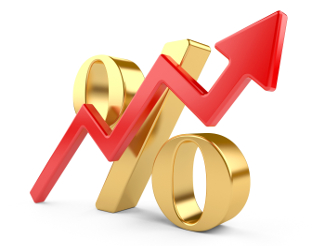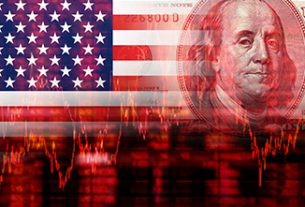One of the more disappointing aspects of President Trump’s tenure is the evolution of his criticism of the Federal Reserve System. While candidate Trump rightfully criticized the Fed for artificially depressing interest rates, President Trump has morphed into attacking the Fed for raising its target federal funds rate. While he correctly identified the Fed’s political motivations for keeping interest rates low in the past, he now desires to benefit politically from the continuation of low interest rates. The big question now is, will Fed Chairman Jay Powell stand up to Trump and continue to hike rates, as is expected once again in December, or will he fold?
Everyone wants to see a strong, healthy economy, perhaps no one more so than the President. Presidents have always sought to take credit for a healthy economy, seeing it as a confirmation of the correctness of their policies. Conversely, Presidents have always sought to pass the blame for a weak economy onto others. Trump is no different in that respect. He has publicly stated that his number one threat is the Federal Reserve, and he blames the Fed for hiking interest rates too quickly and slowing down the economy.
Trump’s understanding of the Fed and its effects on the economy appear to be entirely conventional; the Fed is in charge of running the economy and it raises or lowers interest rates in order to deflate or stimulate the economy respectively. There doesn’t seem to be any understanding that the Fed’s actions aren’t neutral, they have real effects throughout the economy. The concept that the injection of money created out of thin air can result in malinvestment throughout the economy is absent from Trump’s thinking. Like many others, he thinks that the Fed can do what it wants with impunity, hence why he is pressuring the Fed to end its rate hikes.
It’s that misconception, that failure to understand that anything the Fed does to manipulate the economy causes real harm, that is so destructive. As long as the Fed conducts monetary policy it will create business cycles, the series of booms and busts that we have unfortunately become so used to seeing.
Investors need to understand that the Fed’s decade-long policy of near-zero interest rates has created an enormous bubble throughout the economy, and when it bursts it will make 2008 look like nothing. Hiking interest rates may speed up the rate at which the bursting of the bubble arrives, but lowering rates again won’t do anything to stave off the inevitable. Even if Powell ends up acquiescing to Trump and slowing or stopping rate hikes in 2019, the damage has already been done and it was done years ago when quantitative easing first started.
We always knew that the Fed couldn’t put off the day of reckoning forever, and now we’re about to find out just when that day of reckoning is. Investors who fail to realize what is going on and who fail to protect their assets by investing in gold, silver, or other safe havens will suffer enormously.
This article was originally posted on Goldco.



